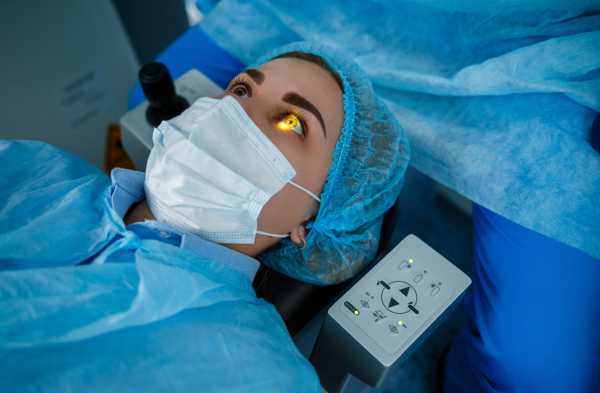Hope for HER2-Positive Breast Cancer Patients: A New Era of Treatment and Survival
HER2-positive breast cancer is one of the most aggressive and challenging types of breast cancer, but thanks to recent medical advancements, the prognosis for patients has improved dramatically. HER2, or human epidermal growth factor receptor 2, is a protein that promotes the growth of cancer cells, and in some breast cancers, the HER2 gene is overexpressed, leading to rapid tumor growth. However, with breakthroughs in HER2-targeted therapies, personalized medicine, and innovative treatments, HER2-positive breast cancer is no longer a death sentence. Instead, it is a treatable condition with increasingly positive outcomes.
HER2-positive breast cancer is one of the most aggressive and challenging types of breast cancer, but thanks to recent medical advancements, the prognosis for patients has improved dramatically. HER2, or human epidermal growth factor receptor 2, is a protein that promotes the growth of cancer cells, and in some breast cancers, the HER2 gene is overexpressed, leading to rapid tumor growth. However, with breakthroughs in HER2-targeted therapies, personalized medicine, and innovative treatments, HER2-positive breast cancer is no longer a death sentence. Instead, it is a treatable condition with increasingly positive outcomes.

This article explores the hope and optimism that has emerged for HER2-positive breast cancer patients, with a focus on the latest treatments, innovations, and clinical approaches that are changing the landscape of care.
-
The Impact of HER2-Targeted Therapy
The discovery of HER2 as a key driver of cancer growth was a pivotal moment in the fight against breast cancer. HER2-positive cancers account for approximately 15-20% of all breast cancer cases, and they tend to be more aggressive and harder to treat than other types. However, the development of HER2-targeted therapies has completely revolutionized treatment, offering patients hope and significantly improving survival rates.
- Trastuzumab (Herceptin):Trastuzumab was the first targeted therapy for HER2-positive breast cancer and remains one of the most important treatments available. This monoclonal antibody works by binding to the HER2 protein on cancer cells, preventing them from receiving signals that promote growth. Trastuzumab has been shown to improve survival rates, reduce the risk of recurrence, and improve the quality of life for patients with HER2-positive breast cancer.
- Pertuzumab (Perjeta):Pertuzumab, another monoclonal antibody, targets a different part of the HER2 receptor. When combined with trastuzumab, it has been shown to improve outcomes significantly for patients with metastatic HER2-positive breast cancer. The combination of these two therapies, along with chemotherapy, has become the standard of care for advanced HER2-positive disease, offering hope for patients whose cancer has spread.
- T-DM1 (Kadcyla):For patients who develop resistance to trastuzumab, T-DM1 (an antibody-drug conjugate) is a powerful option. T-DM1 combines trastuzumab with a chemotherapy agent (emtansine), delivering targeted treatment directly to HER2-positive cancer cells. This approach minimizes damage to surrounding healthy tissue and has shown to improve survival and control disease progression in patients with metastatic HER2-positive breast cancer.
-
Innovative Treatment Strategies: Antibody-Drug Conjugates (ADCs)
One of the most promising advances in the treatment of HER2-positive breast cancer is the development of antibody-drug conjugates (ADCs). ADCs are a type of targeted therapy that combines a monoclonal antibody (such as trastuzumab) with a potent chemotherapy drug. This combination allows for more effective and precise treatment, as the chemotherapy drug is delivered directly to HER2-positive cancer cells.
- Fam-trastuzumab deruxtecan (Enhertu):Enhertu is one of the most exciting ADCs, offering hope for patients with HER2-positive breast cancer, particularly those with HER2-low tumors (those with lower levels of HER2 expression) or patients who have developed resistance to other HER2-targeted therapies. Enhertu has shown impressive results in clinical trials, reducing tumor size and improving progression-free survival in metastatic HER2-positive breast cancer. It represents a breakthrough for patients who previously had limited treatment options.
- Other Emerging ADCs:Research is ongoing into new ADCs and their potential to treat HER2-positive breast cancer. These therapies are helping to target the cancer more precisely, reduce side effects, and improve outcomes for patients, offering a ray of hope for those with advanced or treatment-resistant disease.
-
Immunotherapy: Harnessing the Body’s Immune System
Immunotherapy is a rapidly evolving field in cancer treatment, and its integration with HER2-targeted therapies is opening new possibilities for HER2-positive breast cancer patients. While immunotherapy has had limited success in breast cancer compared to other cancers, recent developments show promise, especially when combined with HER2-targeted drugs.
- Pembrolizumab (Keytruda):Pembrolizumab is an immune checkpoint inhibitor that helps the immune system recognize and attack cancer cells more effectively. While immunotherapy alone has not been a standard treatment for HER2-positive breast cancer, early trials have shown that combining pembrolizumab with HER2-targeted therapies, such as trastuzumab or pertuzumab, may enhance the immune response and improve patient outcomes.
- Combination Therapies:Researchers are investigating combinations of HER2-targeted therapies with other immunotherapies and chemotherapy. These combination strategies aim to overcome the challenges of resistance and improve the effectiveness of treatment, offering new hope for patients with metastatic or recurrent HER2-positive breast cancer.
-
Precision Medicine: Tailoring Treatments for Better Outcomes
Precision medicine is transforming cancer care by offering personalized treatment based on the genetic makeup of an individual’s cancer. For HER2-positive breast cancer patients, precision medicine can help doctors choose the most effective therapies based on genetic mutations, biomarker profiles, and the specific characteristics of the tumor.
- Genomic Testing and Biomarkers:Genetic testing allows for the identification of mutations or alterations in specific genes that might influence the cancer’s behavior or response to treatment. For example, mutations in the PIK3CA gene or alterations in PI3K/Akt/mTOR signaling pathways may be targeted by additional therapies. By identifying such mutations, doctors can tailor treatment to the individual patient, improving the likelihood of a successful outcome.
- HER2-Low Cancers:There is growing interest in targeting cancers with HER2-low expression, which includes tumors that express lower levels of the HER2 protein. Although these cancers were previously considered less likely to benefit from HER2-targeted therapies, new drugs like Enhertu are proving that these tumors can still be effectively treated with targeted approaches.
- Liquid Biopsies:Liquid biopsies, which analyze blood samples for traces of tumor DNA or RNA, are emerging as an important tool for monitoring HER2-positive breast cancer. Liquid biopsies can detect early signs of recurrence or resistance, allowing for quicker adjustments to treatment plans. This technology is helping to personalize care even further, offering patients more timely interventions and better outcomes.
-
Neoadjuvant and Adjuvant Therapy: Preventing Recurrence
One of the major goals of treating HER2-positive breast cancer is to prevent recurrence, which is a risk even after initial treatment. In early-stage HER2-positive breast cancer, neoadjuvant therapy (treatment given before surgery) and adjuvant therapy (treatment given after surgery) are critical strategies for reducing the risk of the cancer coming back.
- Neoadjuvant Chemotherapy and HER2-Targeted Therapy:Neoadjuvant treatment, which often includes a combination of chemotherapy and HER2-targeted therapies, helps shrink tumors before surgery, making it easier to remove them. This approach has been shown to improve surgical outcomes and reduce the risk of recurrence.
- Adjuvant Therapy:After surgery, adjuvant therapies like trastuzumab, pertuzumab, or T-DM1 are used to kill any remaining cancer cells and prevent relapse. Research is also exploring whether extending the duration of HER2-targeted therapies can further reduce the risk of recurrence in high-risk patients.
-
Supportive Care and Quality of Life
As HER2-positive breast cancer treatments improve, so too does the focus on supportive care and maintaining the quality of life for patients. Many of the newer therapies, such as antibody-drug conjugates, are designed to reduce side effects while delivering more targeted treatments, helping patients feel better during their cancer journey.
- Telemedicine and Remote Monitoring:Advances in telemedicine allow patients to consult with healthcare providers remotely, making it easier for those in rural or underserved areas to access expert care. Remote monitoring through apps or wearable devices also helps doctors track a patient’s progress and manage side effects more effectively.
- Mental Health Support:Cancer treatment is emotionally and mentally taxing, and addressing the psychological aspects of care is increasingly recognized as an essential part of the treatment process. Many cancer centers now offer counseling, support groups, and other resources to help patients manage the emotional challenges of their diagnosis and treatment.
-
The Future of HER2-Positive Breast Cancer Care
The future of HER2-positive breast cancer care looks bright, with continuous advancements in treatment, early detection, and personalized medicine. Some of the most exciting prospects on the horizon include:
- Next-Generation Antibody-Drug Conjugates (ADCs):Ongoing research into more effective and precise ADCs promises to offer even better outcomes with fewer side effects for HER2-positive breast cancer patients.
- Immunotherapy Combinations:The combination of HER2-targeted therapies with immunotherapies may open new avenues for treating advanced HER2-positive breast cancer, offering patients with metastatic disease new hope for longer survival.
- Gene Editing and Novel Targeted Therapies:Emerging technologies such as CRISPR and other gene-editing techniques hold the potential to modify genetic factors that contribute to HER2-positive breast cancer, offering even more tailored treatment options in the future.
Conclusion: Renewed Hope for HER2-Positive Breast Cancer Patients
HER2-positive breast cancer has long been a challenging diagnosis, but with the rapid pace of innovation in cancer treatment, there is now more reason than ever to hope. HER2-targeted therapies, antibody-drug








